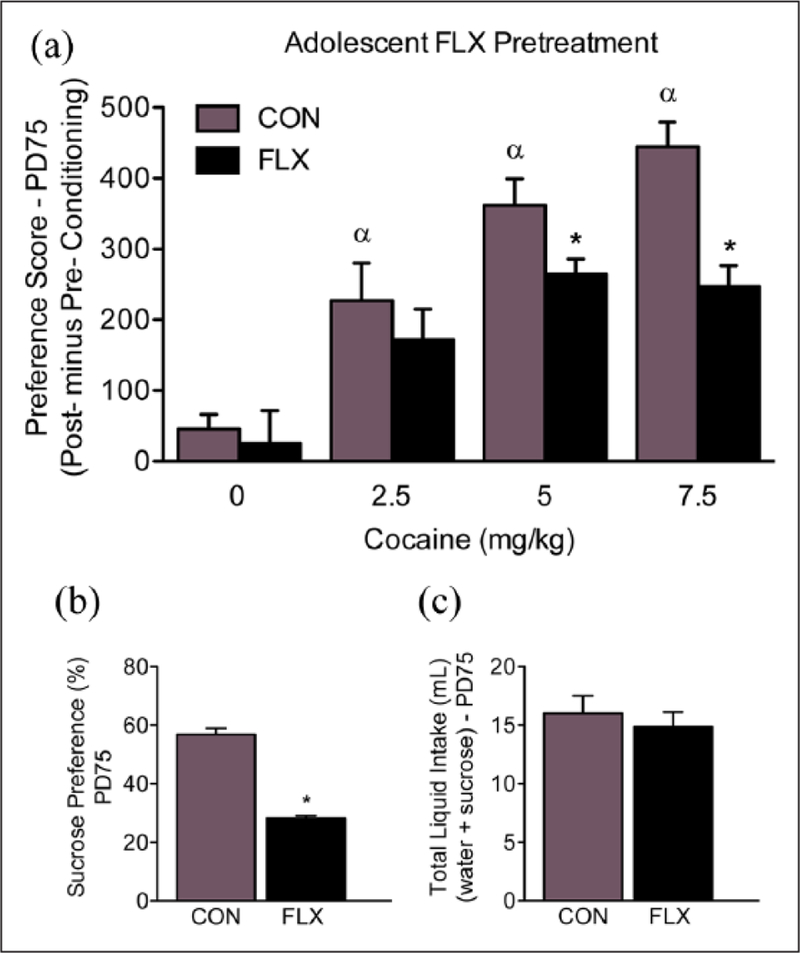Figure 3.
Effects of adolescent fluoxetine (FLX) exposure on reward-related behavior in adulthood. (a) Three-weeks after adolescent antidepressant exposure (postnatal day (PD)-70+), FLX-pretreated mice displayed decreased sensitivity to 5 and 7.5 mg/kg cocaine, when compared to water-pretreated control (CON) mice receiving the same doses of cocaine (n=9–11 per experimental group; p<0.05). *Within cocaine-dose group comparison (p<0.05). αSignificantly different when compared to age-matched controls conditioned to saline (p<0.05). (b) Adolescent FLX pretreatment reduced preference for a 1% sucrose solution three weeks after antidepressant exposure (n=12 per group; p<0.05). (c) No differences in total liquid intake were observed between the experimental groups (p>0.05).

